Come join us now, and enjoy playing your beloved music and browse through great scores of every level and styles!
Can’t find the songbook you’re looking for? Please, email us at: sheetmusiclibrarypdf@gmail.com We’d like to help you!
Table of Contents
William Grant Still: Three Visions (Suite for piano solo)
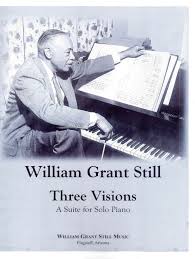
Best Sheet Music download from our Library.
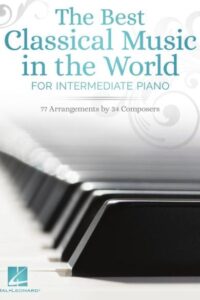
Please, subscribe to our Library.
If you are already a subscriber, please, check our NEW SCORES’ page every month for new sheet music. THANK YOU!
0:00 – Dark Horseman 1:30 – Summerland 6:00 – Radiant pinnacle
Browse in the Library:
Or browse in the categories menus & download the Library Catalog PDF:
William Grant Still
William Grant Still (1895 – 1978) was an American composer, arranger, conductor, and multi-instrumentalist, often called “the Dean of African American composers.” He was the first African American to have a symphony performed by a major orchestra in the United States, the first to conduct a major symphony orchestra, and the first to have an opera produced by a major opera company.

Early Life and Education
- Born on May 11, 1895, in Woodville, Mississippi, and raised in Little Rock, Arkansas.
- His father died when he was an infant, and his mother, a teacher, encouraged his musical interests.
- Studied at Wilberforce University, where he initially pursued medicine but shifted to music.
- Later trained at the Oberlin Conservatory of Music, then studied composition with George Whitefield Chadwick and later with avant-garde composer Edgard Varèse in New York.
Career and Achievements
- Worked as an arranger for popular and jazz bands in New York, including for W. C. Handy and Paul Whiteman.
- Became involved with the Harlem Renaissance, blending African American musical traditions with classical forms.
- His Symphony No. 1 “Afro-American” (1930) was the first symphony by an African American to be performed by a major U.S. orchestra (Rochester Philharmonic, 1931).
- Conducted the Los Angeles Philharmonic at the Hollywood Bowl in 1936, making him the first African American to lead a major orchestra in the U.S.
- His opera Troubled Island (1939, libretto by Langston Hughes and Verna Arvey) was the first by an African American staged by a major company (New York City Opera, 1949).
Musical Style
- Fused classical European traditions with African American idioms: blues, spirituals, jazz, and folk tunes.
- Emphasized lyricism, accessibility, and cultural expression rather than strict modernist abstraction.
- Advocated for a distinctly American classical music rooted in Black cultural traditions.
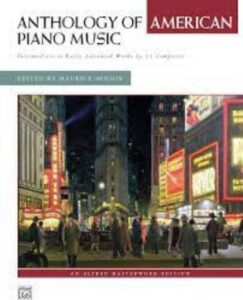
Notable Works
- Symphonies: Afro-American Symphony (No. 1), Song of a New Race (No. 2), The Sunday Symphony (No. 3), Autochthonous Symphony (No. 4), Western Hemisphere Symphony (No. 5).
- Operas: Troubled Island, A Bayou Legend, Highway 1, U.S.A.
- Chamber & Vocal Music: Lyric Quartette, Danzas de Panama, many art songs.
- Also wrote for radio, film, and popular ensembles.
Legacy
- Broke multiple racial barriers in American classical music.
- Opened doors for later generations of African American composers and performers.
- His works are increasingly studied and performed, recognized as cornerstones of 20th-century American music.
- Died in Los Angeles, California, on December 3, 1978.
William Grant Still’s music stands out for celebrating African American heritage within the classical tradition, offering a unique and dignified voice at a time when systemic racism excluded many Black composers from mainstream recognition.
Three Visions (1935) is one of William Grant Still’s most powerful works for solo piano. It is a short suite in three movements, deeply symbolic, written during the Harlem Renaissance period when Still was developing a distinctive African American voice within classical idioms. The suite is often regarded as a spiritual and philosophical statement on the human soul’s journey after death.
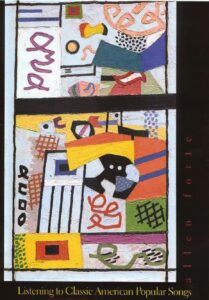
Three Visions (1935) Overview and Musical Analysis
- Title: Three Visions (for solo piano)
- Date: 1935
- Movements:
- Dark Horsemen
- Summerland
- Radiant Pinnacle
- Theme: The cycle represents the progression of the human soul: confrontation with death, passage to spiritual peace, and ultimate ascension.
1. Dark Horsemen
- Character: Turbulent, dissonant, and rhythmically urgent.
- Musical features:
- Rapid ostinati and syncopations drive the texture.
- Dense chords, sharp dynamics, and angular melodies suggest violence and inevitability — the soul’s confrontation with mortality.
- Harmonic language: rooted in tonal centers but heavily chromatic, with influences from early modernism (Still studied with Varèse).
- Strong percussive writing evokes imagery of galloping horses (possibly a reference to the biblical Four Horsemen of the Apocalypse).
Interpretation: This movement symbolizes the struggle and chaos of death, the breaking away of the soul from earthly ties.
2. Summerland
- Character: Gentle, lyrical, and serene — the most frequently performed movement.
- Musical features:
- Lush, hymn-like melody in the middle register, often played with a singing legato.
- Rich Romantic harmonies, influenced by Chopin and Debussy but colored with blues-inflected lines.
- Transparent texture, long sustained chords, and rubato create a meditative atmosphere.
- Tonal stability (often interpreted in D♭ major) provides calmness.
Interpretation: Summerland represents the spiritual paradise the soul reaches after death — peaceful rest and eternal beauty.
This movement is sometimes performed alone as an independent concert piece or even arranged for orchestra.
3. Radiant Pinnacle
- Character: Triumphant, luminous, and ascending.
- Musical features:
- Energetic rhythms, sweeping arpeggios, and brighter harmonies than in the previous movements.
- Builds momentum with a sense of striving upward, often through sequences and rising melodic gestures.
- Tonal clarity, major sonorities, and climactic chords express transcendence.
- Harmonically more consonant than Dark Horsemen, but with modern chromatic coloring.
Interpretation: This final movement depicts the soul’s union with the divine, ascending to its highest state — ultimate illumination.
Stylistic Significance
- Still fuses African American spiritual aesthetics (hymn-like phrasing, blues shadings, and rhythmic vitality) with Romantic piano traditions and 20th-century modernism.
- The three movements form a narrative arc: struggle → peace → transcendence.
- Philosophically, the suite echoes African American religious culture, yet framed in a universal human story of death and renewal.
In short, Three Visions is both a musical poem and a spiritual statement. It demonstrates Still’s ability to merge classical craft with African American cultural expression, creating a deeply humanistic and uplifting work.
Perfect — let’s dive into a harmonic walkthrough of “Summerland” from William Grant Still’s Three Visions. Since this movement is often performed alone and is the most tonal of the suite, it lends itself beautifully to harmonic analysis.
(Note: Exact bar numbers vary depending on the edition, but I’ll give the progression in sections. The piece is most often read in D♭ major.)
“Summerland” — Harmonic Analysis
Opening (mm. 1–4)
- Key: D♭ major
- Chords:
- I (D♭ major) — tonic established gently, hymn-like.
- IV (G♭ major) with added 6th/9th sonorities.
- I again, enriched by suspensions and inner voice motion.
The effect is calm, hymn-like stability. Still avoids strong cadences, instead sustaining a floating atmosphere.
First Phrase (mm. 5–12)
- Melody enters in the middle register, supported by soft chords.
- Progression:
- I → V/vi → vi (B♭ minor) → ii (E♭ minor) → V (A♭ major).
- Resolves back to I (D♭).
This is a classical diatonic motion but with added-color tones (6ths, 9ths), giving a Debussy-like lushness. The move to vi and ii emphasizes a spiritual, tender quality rather than dramatic tension.
Second Phrase (mm. 13–20)
- More chromaticism enters.
- Chords:
- I → ♭VII (C♭ major) → IV (G♭) → ii7 (E♭m7) → V7 (A♭7).
- Resolution: cadences softly back to I.
The use of ♭VII (C♭) is borrowed from folk/blues progressions. It enriches the harmony with a distinctly African American inflection inside an otherwise classical framework.
Climactic Middle Section (mm. 21–32)
- Harmonically more adventurous:
- Alternation between vi (B♭ minor) and IV (G♭ major).
- Sequence through chromatic mediants: I (D♭) → iii (F minor) → V/ii (F7) → ii (E♭ minor).
- Approaches V7 (A♭7) with stronger rhythm and dynamics.
The chromatic mediant shifts (D♭ → Fm → A♭) give the impression of warmth and expansion — the soul ascending in vision.
Return (mm. 33–40)
- Recapitulation of the opening theme.
- Progression largely tonic (I), with embellishments:
- I → IV → ii7 → V7 → I.
- Still decorates the chords with added 9ths and 11ths, keeping the sound lush and modern.
Coda (mm. 41–end)
- Gentle descent, cadencing finally on a pure I (D♭ major).
- Chords sustain with long fermatas, creating timeless stillness.
The coda is essentially a plagal cadence (IV → I), which resonates with the feeling of a hymn or spiritual.
Summary of Harmonic Style in “Summerland”
- Foundation: Firmly tonal, centered in D♭ major.
- Coloration: Use of added 6ths, 9ths, 11ths for lush textures.
- African American inflection:
- Borrowed ♭VII (C♭ major) → I.
- Blues-like coloring of melodic lines (flattened 3rd, 7th inflections).
- Narrative arc: Gentle tonic → chromatic expansion → luminous return.
- Effect: A meditative vision of paradise — serenity, lyricism, timeless rest.
So, harmonically, Summerland balances European Romanticism (Chopin, Debussy) with African American idioms (bluesy modal borrowing, plagal cadences). This is why it feels both “classical” and “soulful.”
| Artist or Composer / Score name | Cover | List of Contents |
|---|---|---|
| Michelle Branch – One Of These Days | ||
| Michelle Satb (Musescore File).mscz | ||
| Michiru Oshima ICO Castle In The Mist Piano Solo |
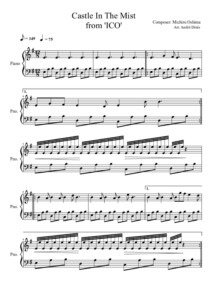 |
|
| Michiwo Tashima Guitar Solo & TAB In Popular Ballad Vol 1 |
 |
Michiwo Tashima Guitar Solo In Popular Ballad Vol 1 |
| Michiwo Tashima Guitar Solo In Popular Ballad Vol. 2 Guitar Tablature |
 |
Michiwo Tashima Guitar Solo In Popular Ballad Vol. 2 Guitar Tablature |
| Mick Jagger (Philip Norman) Book |
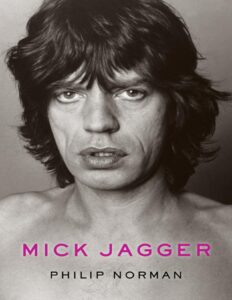 |
|
| Midnight Mood (Musescore File).mscz | ||
| Midsummer Waltz (The Stepford Wives OST) David Arnold | ||
| Miguel Bernal Jiménez – 3 Villancicos (arr. Guitarra) |
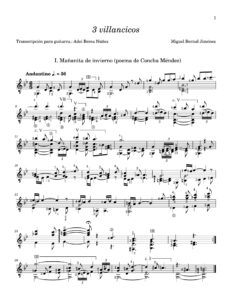 |
|
| Mika – Life In Cartoon Motion Songbook |
 |
Mika – Life In Cartoon Motion Songbook |
| Mika – Over My Shoulder | ||
| Mika – Underwater | Mika – Underwater part | |
| Mikael Tariverdiev – I Asked the Ash Tree – From The Irony Of Fate Guitar Solo |
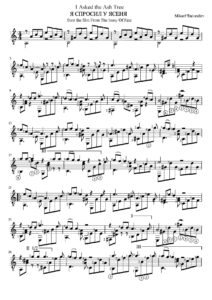 |
|
| Mike Cornick – Film Noir | Mike Cornick – Film Noir | |
| Mike Cornick Easy Jazzy Piano |
 |
Mike Cornick Easy Jazzy Piano |
| Mike Lazarev Unhinged Again |
 |
|
| Mike Oldfield – Tubular Bells (Piano solo) |
 |
Tubular Bells Mike Oldfield |
| Mike Oldfield Five Arrangements For Classical Guitar With TAB |
 |
Mike Oldfield Five Arrangements For Classical Guitar With TAB |
| Mike Oldfield Songbook |
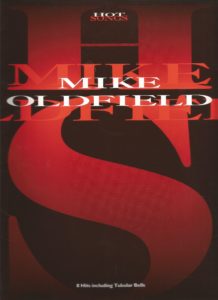 |
 |
| Mike Oldfield The Best Of Elements Book |
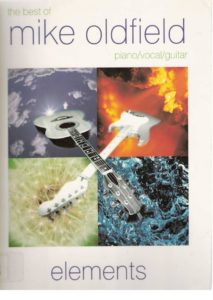 |
Mike Oldfield The Best Of Elements Book |
| Mike Oldfield Tubular Bells II Piano Guitar Chords (Songbook) |
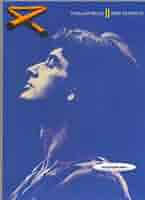 |
Mike Oldfield Tubular Bells II Piano Guitar Chords (Songbook) Contents |
| Mike Rutherford – The Living Years (Book) |
 |
|
| Mike Stern Altered Scale Soloing For Jazz Guitar |
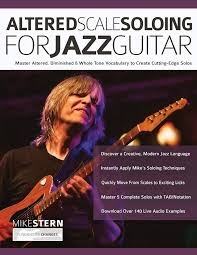 |
|
| Mike Stern – Jazz Notes – Sheet Music with Tablature |
 |
Mike Stern – Jazz Notes – Sheet Music |
| Mike Stern Guitar Transcriptions Artist Transcriptions Guitar |
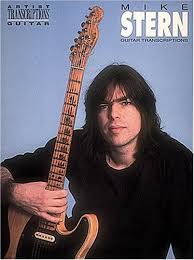 |
Mike Stern Guitar Transcriptions Artist Transcriptions Guitar |
| Mil Guitarras Victor Jara Cancionero (Guitarra fàcil) Easy guitar |
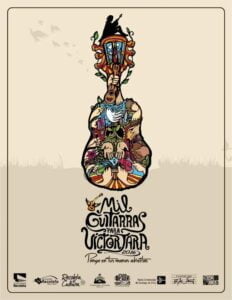 |
Victor Jara Mil guitarras |
| Miles Davis All Blues (Easy Piano Solo) | Miles Davis All Blues (Easy Piano Solo) | |
| Miles Davis – Aebersold – 07 – [Miles Davis] Jazz Play Along Book + Audio Mp3 |
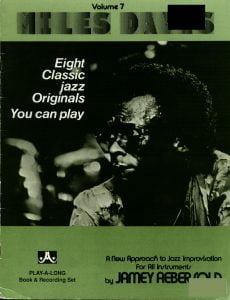 |
Aebersold – 07 – [Miles Davis] |
| Miles Davis – Birth Of The Cool – Nicolas Celiz (Full score) |
 |
|
| Miles Davis – Blue in green | Blue in Green by Miles Davis | |
| Miles Davis – Kind Of Blue |
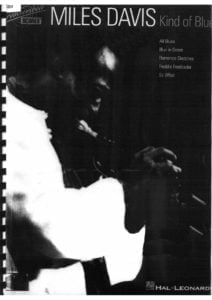 |
Miles David Kind of Blue |
| Miles Davis – Originals Solos Vol. 2 Artist transcriptions Trumpet |
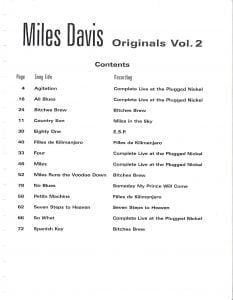 |
Miles Davis solos 2 |
| Miles Davis – Trane’s Blues Solo Transcription |
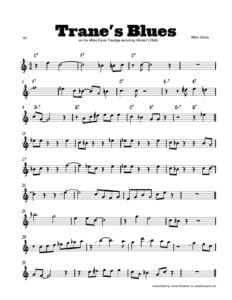 |
|
| Miles Davis – Transcribed Trumpet Solos |
 |
Miles Davis solos 1 |
| Miles Davis – When Lights Are Low (Benny Carter) As played by |
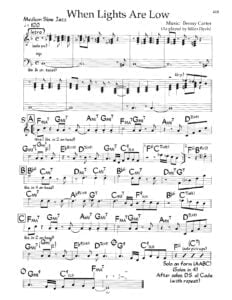 |
|
| Miles Davis · Eine Biographie Sandner Wolfgang Sandner Wolfgang Book (Deutsch) |
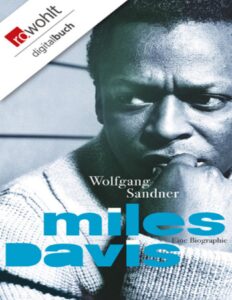 |
|
| Miles Davis Autobiography (Book) |
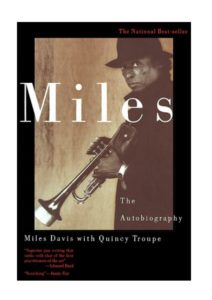 |
|
| Miles Davis Bill Evans Blue In Green Piano Solo | Miles Davis Bill Evans Blue In Green Piano Solo | |
| Miles Davis Blue In Green | Miles Davis Blue In Green | |
| Miles Davis Jazz Piano Solo Series Volume 01 2nd Edition |
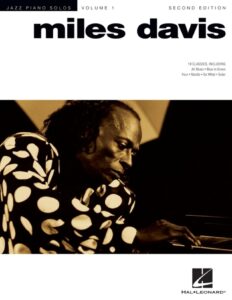 |
Miles Davis (Songbook) Jazz Piano Solo Series Volume 1 (Miles Davis) |
| Miles Davis Jazz Play Along Volume 02 with audio MP3 |
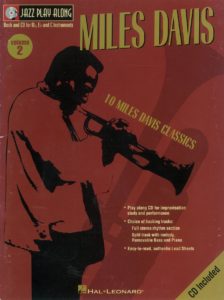 |
Miles Davis Jazz Play Along_compressed |
| Miles Davis La biografia definitiva – Ian Carr -Book (Spanish – Español) |
 |
|
| Miles Davis Omnibook For Bass Clef Instruments |
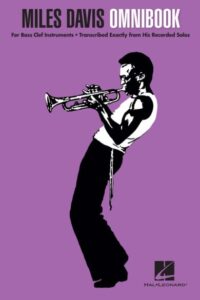 |
Miles Davis Omnibook For Bass Clef Instruments |
| Miles Davis Omnibook For Bb Instruments |
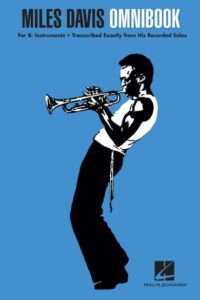 |
Miles Davis Omnibook For Bb Instruments |
| Miles Davis Omnibook For C instruments Transcribed exactly from his recorded solos |
 |
Miles Davis Omnibook For C instruments Transcribed exactly from his recorded solos |
| Miles Davis Omnibook For Eb Instruments |
 |
Miles Davis Omnibook For Eb Instruments |
| Miles Davis Originals Vol 2 |
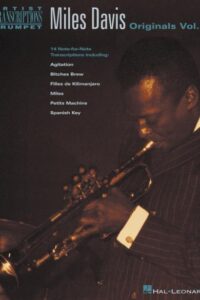 |
Miles Davis Originals Vol 2 |
| Miles Davis Real Book C Edition |
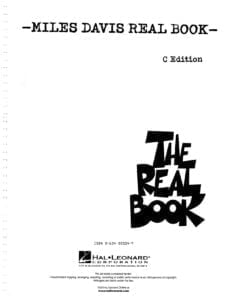 |
Miles Davis real book |
| Miles Davis Tempus Fugit by Bud Powell Jazz Standard |
 |
|
| Miles Davis The Complete Guide (Book) |
 |
|
| Miles Davis The Definitive Biography by Ian Carr (Book) |
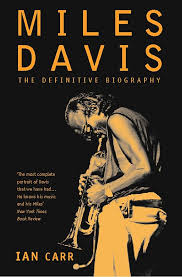 |
|
| Miles Davis The Miles Davis Real Book Second Edition C Instruments |
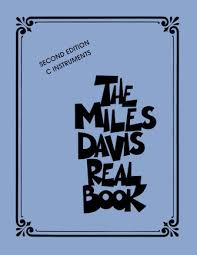 |
Miles Davis The Miles Davis Real Book Second Edition C Instruments Contents |
| Miles Davis The Music Of Miles Davis A Study Analysis Of Compositions Solo Transcriptions From The Great Jazz Composer And Improvisor |
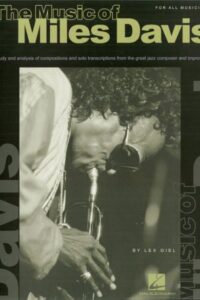 |
|
| Miles Davis, The Studio Recordings of the Miles Davis Quintet, 1965-1968 by Keith Waters (Book) |
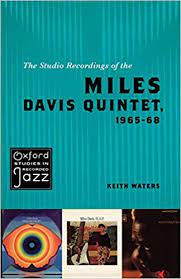 |
|
| Milestones by Miles Davis Jazz Play Along |
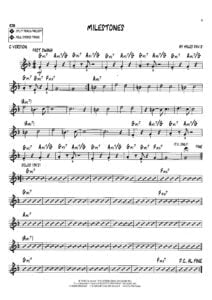 |
Milestones |
| Miley Cyrus – The Climb | ||
| Miley Cyrus Flowers Piano Solo |
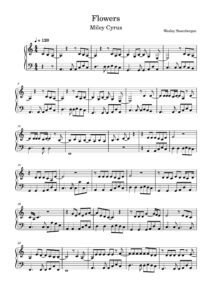 |
|
| Miley Cyrus The Time Of Our Lives |
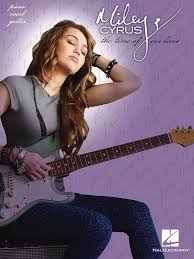 |
Miley Cyrus The Time Of Our Lives |
| Milhaud – 3 Rag-Caprices Piano Solo |
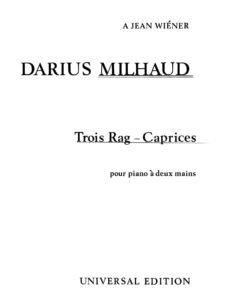 |
|
| Milhaud piano sonata no. 1 op. 33 |
 |
|
| Milhaud Saudades do Brasil piano Op. 67 |
 |
|
| Mille Echi (La Piovra) Ennio Morricone | ||
| Millennium Blues Vol 88 – with Play Along with MP3 audio tracks |
 |
Millennium Blues Vol 88 – with Play Along with MP3 audio tracks |
| Milonga Del Angel (Musescore File).mscz | ||
| Milton Nascimento Songbook by Wilson Lopes Cifras Partituras |
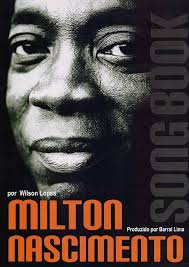 |
Milton Nascimento Songbook by Wilson Lopes Cifras Partituras |
| Minami, K. Classical Guitar Sheet Music arrangements | Minami, K. Classical Guitar Sheet Music Arrangements | |
| Minecraft – Alpha (Minecraft Credits Theme) |
 |
|
| Minecraft – Wet Hands |
 |
|
| Minecraft Calm 1,2,3 Piano Solo (Minecraft, Sweden, Clark) | Minecraft Calm 1,2,3 Piano Solo (Minecraft, Sweden, Clark) | |
| Minecraft Calm 1,2,3 Piano Solo (Minecraft, Sweden, Clark) Musescore file (Musescore file).mscz | Musescore File | |
| Minecraft Music From Minecraft Easy Piano Collection | Minecraft Music From Minecraft Easy Piano Collection | |
| Minecraft Piano – Piano – Sheet Music |
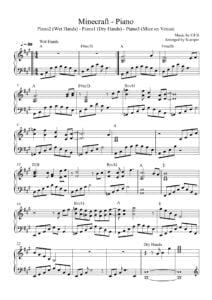 |
|
| Minecraft Vol Alpha (Full Piano Collection) (Musescore File).mscz | ||
| Minecraft Vol. Alpha (Full Piano Collection) |
 |
|
| Minor Blues Jazz Guitar Exercise (Musescore File).mscz | ||
| Minor Heaven (Tarja Turunen) | ||
| Minor II V Mastery For Jazz Guitar By Joseph Alexander Learn Bebop Soloing |
 |
|
| Minor Swing (Chocolat OST) Rachel Portman | ||
| Minority (Pat Martino Style) Jazz Standard By Gigi Gryce (Musescore File).mscz | ||
| Minstrels (Marcovalerio Marletta) | ||
| Miracle Piano Teaching System, The |
 |
|
| Mirage (Lara Fabian) | ||
| Misa Collection 3 Songbook |
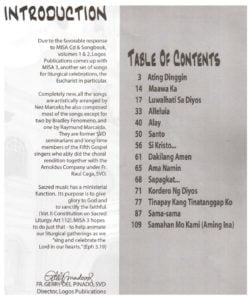 |
|
| Misraki Hornez Sans Vous (Chanté Par Lucien Jeunesse) |
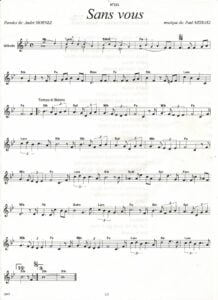 |
|
| Miss Saigon Sun And Moon (music by Claude-Michel Schönberg) |
 |
|
| Miss Saigon 2017 Broadway Edition Vocal Selections Boublil And Schönberg (The Musical) |
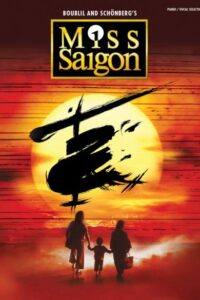 |
Miss Saigon 2017 Broadway Edition Vocal Selections Boublil And Schönberg |
| Missa Johnouchi Kataribe Piano Collection |
 |
|
| Mission Impossible – Mission Impossible Theme | ||
| Missy Higgins – Scar | ||
| Missy Higgins – Sugarcane | ||
| Missy Higgins – They Werent There | ||
| Missy Higgins – This Is How It Goes | ||
| Misty (jazz standard) by Erroll Garner arr. by Willie Myette Piano solo | Misty (jazz standard) by Erroll Garner arr. by Willie Myette Piano solo | |
| Misty – Errol Garner |
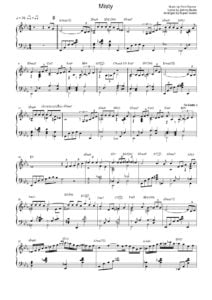 |
|
| Misty – Erroll Garner (Piano Solo) | Misty – Erroll Garner (Piano Solo) | |
| Misty (Musescore File).mscz | ||
| Misty by Erroll Garner |
 |
|
| Misty Erroll Garner And Johnny Burke (Jazz Standard) | Misty Erroll Garner And Johnny Burke (Jazz Standard) | |
| Mitch Leigh The Impossible Dream (The Quest) From The Musical Man Of La Mancha | Mitch Leigh The Impossible Dream (The Quest) From The Musical Man Of La Mancha | |
| Mitsukiyo Blue Archive – Constant Moderato piano solo |
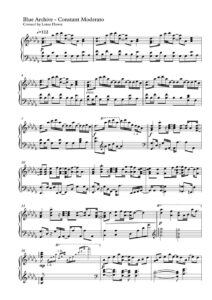 |
|
| Miumiu I Wish You Love Bossa Nova |
 |
|
| Mizue Murakami Autumn Leaves Tango Level 4 Intermediate for piano solo |
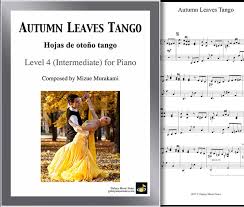 |
|
| Moana – How Far I’ll Go (another version) | Moana | |
| Moana Songbook (Lin Manuel Miranda) Piano Vocal guitar |
 |
Moana Songbook (Lin Manuel Miranda) Piano Vocal guitar |
| Moby – Great Escape | ||
| Moby – Harbour | ||
| Moby – In My Heart | ||
| Moby – In This World | ||
| Moby – The Rafters | ||
| Moby – We Are All Made Of Stars | ||
| Moby – Why Does My Heart | ||
| Moby Play Songbook Piano Vocal Guitar chords |
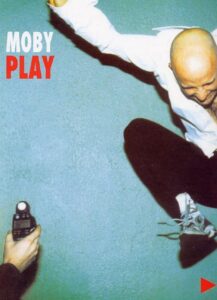 |
|
| Modal & Contemporary Patterns By David Baker |
 |
Modal & Contemporary Patterns By David Baker |
| Modern Guitar Method Grade 1 Mel Bay |
 |
Modern Guitar Method Grade 1 Mel Bay |
| Modern Guitar Method Grade 2 Mel Bay |
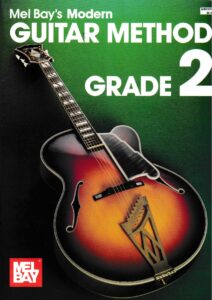 |
Modern Guitar Method Grade 2 Mel Bay |
| Modern Guitar Method Grade 3 Mel Bay (expanded edition) |
 |
Modern Guitar Method Grade 3 Mel Bay (expanded edition) |
| Modern Guitarist’s Handbook Runs, Modulations and Fill-Ins by Harry Volpe and frank Victor (Vintage book) |
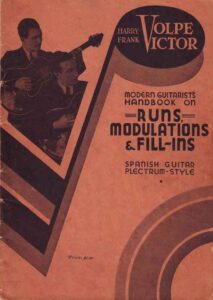 |
Modern Guitarist’s Handbook Runs, Modulations and Fill-Ins by Harry Volpe and frank Victor (Vintage book) |
| Modern Guitarist’s Handbook Runs, Modulations and Fill-Ins by Harry Volpe and frank Victor (Vintage book) |
 |
Modern Guitarist’s Handbook Runs, Modulations and Fill-Ins by Harry Volpe and frank Victor (Vintage book) |
| Modern Guitarist’s Handbook Runs, Modulations and Fill-Ins by Harry Volpe and frank Victor (Vintage book) |
 |
Modern Guitarist’s Handbook Runs, Modulations and Fill-Ins by Harry Volpe and frank Victor (Vintage book) |
| Modern Guitarist’s Handbook Runs, Modulations and Fill-Ins by Harry Volpe and frank Victor (Vintage book) |
 |
Modern Guitarist’s Handbook Runs, Modulations and Fill-Ins by Harry Volpe and frank Victor (Vintage book) |
| Modern Guitarist’s Handbook Runs, Modulations and Fill-Ins by Harry Volpe and frank Victor (Vintage book) |
 |
Modern Guitarist’s Handbook Runs, Modulations and Fill-Ins by Harry Volpe and frank Victor (Vintage book) |
| Modern Guitarist’s Handbook Runs, Modulations and Fill-Ins by Harry Volpe and frank Victor (Vintage book) |
 |
Modern Guitarist’s Handbook Runs, Modulations and Fill-Ins by Harry Volpe and frank Victor (Vintage book) |
| Modern Guitarist’s Handbook Runs, Modulations and Fill-Ins by Harry Volpe and frank Victor (Vintage book) |
 |
Modern Guitarist’s Handbook Runs, Modulations and Fill-Ins by Harry Volpe and frank Victor (Vintage book) |
| Modern Guitarist’s Handbook Runs, Modulations and Fill-Ins by Harry Volpe and frank Victor (Vintage book) |
 |
Modern Guitarist’s Handbook Runs, Modulations and Fill-Ins by Harry Volpe and frank Victor (Vintage book) |
| Modern Guitarist’s Handbook Runs, Modulations and Fill-Ins by Harry Volpe and frank Victor (Vintage book) |
 |
Modern Guitarist’s Handbook Runs, Modulations and Fill-Ins by Harry Volpe and frank Victor (Vintage book) |
| Modern Guitarist’s Handbook Runs, Modulations and Fill-Ins by Harry Volpe and frank Victor (Vintage book) |
 |
Modern Guitarist’s Handbook Runs, Modulations and Fill-Ins by Harry Volpe and frank Victor (Vintage book) |
| Modern Guitarist’s Handbook Runs, Modulations and Fill-Ins by Harry Volpe and frank Victor (Vintage book) |
 |
Modern Guitarist’s Handbook Runs, Modulations and Fill-Ins by Harry Volpe and frank Victor (Vintage book) |
| Modern Jazz Guitar Concepts by Jens Larsen with Tablature |
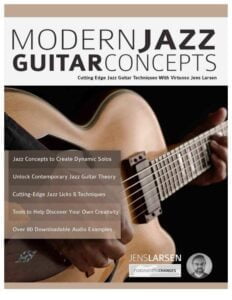 |
Modern Jazz Guitar Concepts Jens Larsen |
| Modern Jazz Piano – Brian Waite A study in Harmony and Impro |
 |
|
| Modern Jazz Piano Styles by Walter Stuart |
 |
|
| Modern Jazz Quartet (Songbook) Jazz Piano Solos Series Volume 18 (Modern Jazz Quartet) |
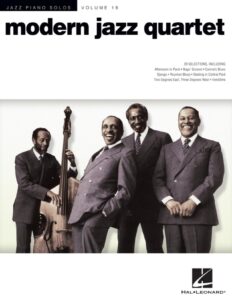 |
Modern Jazz Quartet (Songbook) Jazz Piano Solos Series Volume 18 (Modern Jazz Quartet) |
| Modern Jazz Tenor Solos Hunt Butler |
 |
Modern Jazz Tenor Solos Hunt Butler |
| Modern Movie Songs 3rd Edition Very Easy for beginners Piano Big-Note piano |
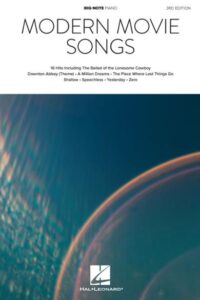 |
Modern Movie Songs 3rd Edition Very Easy for beginners Piano Big-Note piano |
| Modern Movie Songs Songbook 2nd Edition Very Easy for beginners Piano Big-Note piano |
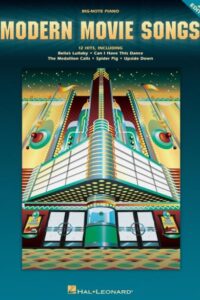 |
Modern Movie Songs Songbook 2nd Edition Very Easy for beginners Piano Big-Note piano |
| Modern Piano -Teaching (By William Townsend) (1911) |
 |
|
| Modern Rock Hits – Easy Guitar Play-Along PDF + MP3 audio tracks with Tablature |
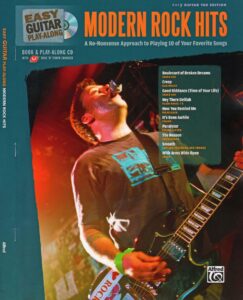 |
Modern Rock Hits – Easy Guitar Play-Along sheet music pdf |
| Modern Russian Piano Music (2 volumes) |
 |
Modern Russian Piano Music (2 volumes) Modern Russian Piano Music I (2 volumes) |
| Modern Times 60 Original Contemporary Graded Works (2007) Sheet Music Classical Guitar |
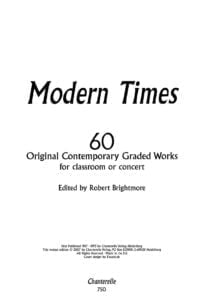 |
Modern Times 60 Original Contemporary Graded Works (2007) Sheet Music Classical Guitar |
| Modern Wedding Songs Piano Vocal Guitar |
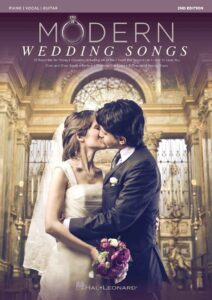 |
Modern Wedding Songs Piano Vocal Guitar |
| Modes And Moods Piano Solos By Robert D. Vandall Early Intermediate |
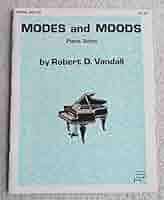 |
Modes And Moods Piano Solos By Robert D. Vandall Early Intermediate |
| Mompou Cants màgics (piano) |
 |
|
| Mompou L’hora grisa (voice and piano) |
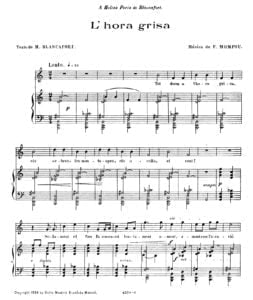 |
|
| Mompou Préludes Pour Piano |
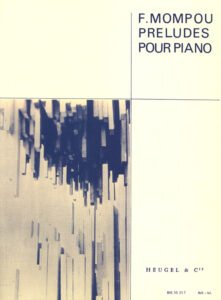 |
|
| Mompou Scènes d’enfants (piano) |
 |
Mompou Scenes D’enfants |
| Mompou Souvenirs de L’exposition |
 |
|
| Mompou Suburbis (piano) |
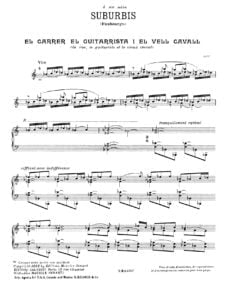 |
|
| Mompou Impressions Íntimes – Impresiones Intimas |
 |
|
| Mompou – Dialogues (piano) | Mompou – Dialogues (piano) | |
| Mompou Frederic – Variations sur un Theme de Chopin | Mompou Frederic – Variations sur un Theme de Chopin | |
| Mompou Paisatges – Paisajes – Paysages |
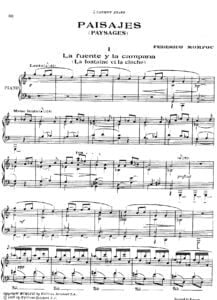 |

